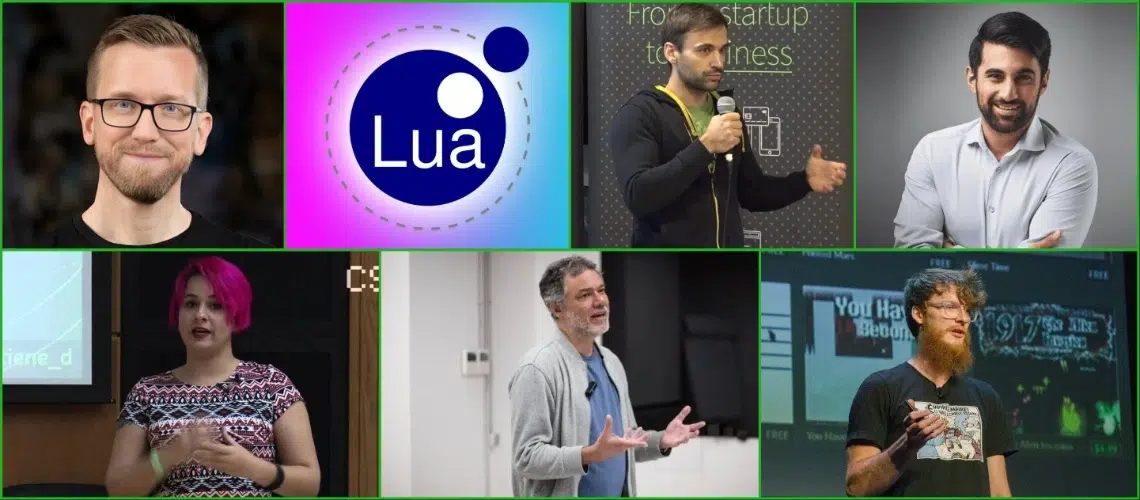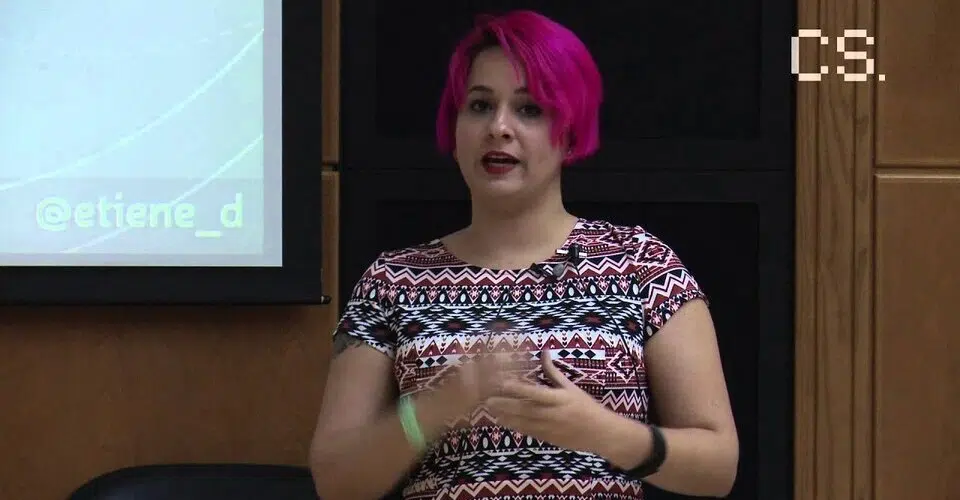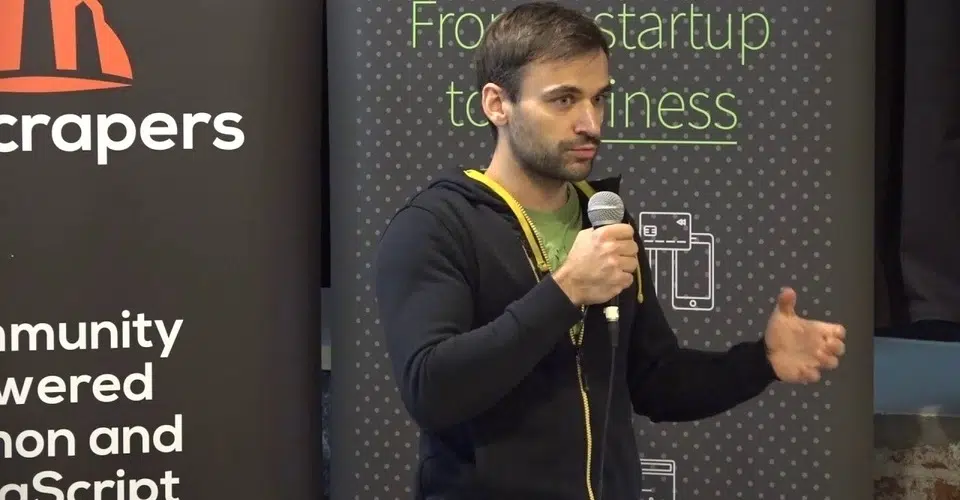16 Lua Developers Making a Quiet Impact

Lua is one of the most versatile and lightweight scripting languages in the world—powering everything from game engines and web servers to real-time messaging and Neovim plugins.
Its global success is driven by an elite group of developers: the creators of core technologies like LuaJIT and LuaRocks, startup founders who built billion-dollar platforms using Lua, passionate educators and bloggers, open-source maintainers, and even programming Olympiad champions. Below is a carefully curated list of the most impactful Lua developers worldwide—individuals who have shaped the language’s evolution and proven its capabilities across diverse domains.
- Leaf Corcoran
- Mike Pall
- Roberto Ierusalimschy
- Hisham Muhammad
- Yichun Zhang
- Etiene Dalcol
- Enrique García Cota
- Bart van Strien
- Marco Palladino
- Fabio Mascarenhas
- Björn Ritzl
- Matthew Wild
- Marek Majkowski
- Ognyana Stefanova
- TJ DeVries
- Folke Lemaitre
Now, let’s delve into each expert’s profile and see what makes them notable in the Lua landscape:
Leaf Corcoran

Nationality: American
Leaf is the creator of MoonScript and founder of itch.io, embodying the intersection of open-source development and entrepreneurship. MoonScript, which Leaf released in 2011, is a high-level language that compiles to Lua, designed to make Lua development more expressive.
He actually writes most of his projects in MoonScript, including itch.io – the popular indie game marketplace he founded. As a startup founder who still codes daily, Leaf has used Lua/MoonScript to build web frameworks (like Lapis for web apps) and game jams (he actively organizes LÖVE2D game jam events). His work proves Lua’s versatility: powering a large-scale web platform (itch.io), game prototypes, and tools.
Leaf is also an influential voice in the indie game dev community, openly sharing his code on GitHub and engaging with developers on forums and Twitter. By marrying Lua technology with creative platforms, he has expanded Lua’s reach in game development and digital art circles.
- X (Twitter): @moonscript
- Github: leafo
- Website/Blog: leafo.net
Mike Pall
Nationality: German
Mike is the genius behind LuaJIT, the just-in-time compiler that turbocharged Lua’s performance. He single-handedly created LuaJIT in 2005 and has maintained it as one of the fastest dynamic language runtimes.
Widely regarded as an “incredible programmer” by the community, Mike implemented LuaJIT’s trace compiler and optimizer, achieving speed rivaling C in many cases. His work enabled Lua to be used in high-performance domains like network routing, game engines, and trading systems. After a hiatus, Mike returned to active development (working toward LuaJIT 3.0 in 2024). Known for his low-level mastery, he has kept LuaJIT compatible with new architectures and pioneered features like the GC64 mode for 64-bit performance.
Mike’s relentless focus on efficiency has made LuaJIT a cornerstone of projects like OpenResty and Redis, and solidified his reputation in the programming world.
Roberto Ierusalimschy

Nationality: Brazilian
Roberto is the creator and chief architect of the Lua programming language. A professor at PUC-Rio, he has been guiding Lua’s development since its inception in 1993, making it one of the world’s fastest, lightest scripting languages (embedded in everything from game engines to Adobe Photoshop).
He authored the definitive Programming in Lua book series and received the Brazilian Computer Society’s Scientific Merit Award in 2013. Under Roberto’s leadership, Lua’s minimalist design and emphasis on embeddability have achieved global popularity, demonstrating Brazil’s contribution to programming language innovation. He remains active in academia and open-source, overseeing Lua’s evolution and mentoring the next generation of language developers.
-
Linkedin: Roberto Ierusalimschy
-
Github: roberto-ieru
Hisham Muhammad
Nationality: Brazilian
Hisham is a prominent Lua community contributor, best known as the creator of LuaRocks, the Lua package manager. He has been active in open source for over 20 years, creating and maintaining several Lua projects.
Hisham started LuaRocks in 2007 to streamline Lua module distribution, which greatly expanded the Lua ecosystem. He later designed Teal, a statically-typed dialect of Lua that compiles to Lua, bringing optional typing to Lua development. Hisham also built the popular Unix tool htop and has contributed to projects like GoboLinux. A frequent speaker and mentor, he has served as an organizer in the LabLua group and has written blog posts and tutorials to help developers.
Hisham’s work exemplifies open-source leadership—improving Lua’s tooling (from modules to IDE integration) and advocating for the language globally.
- Linkedin: Hisham Muhammad
-
Github: hishamhm
-
Website/Blog: hisham.hm
Yichun Zhang
Lua makes it possible to build scalable and dynamic web applications inside Nginx without sacrificing speed.
Nationality: Chinese
Yichun is the original creator of OpenResty, a powerful web platform based on Nginx and Lua. He pioneered using LuaJIT within the Nginx web server, enabling high-performance scripting in the web tier.
As Founder and CEO of OpenResty Inc., Yichun leads development of this open-source framework that powers everything from API gateways to web application firewalls. He has authored dozens of Nginx/Lua modules (for caching, Redis, MySQL, etc.) and is a major contributor to the LuaJIT project. Yichun’s work has had industry-wide impact: OpenResty is the basis of Cloudflare’s early systems and Kong’s API gateway, among others.
A frequent speaker and blogger, he has shared his expertise in optimizing Lua at scale and even wrote an official Programming OpenResty book. Yichun’s blend of open-source zeal and entrepreneurial drive has firmly established Lua in the high-concurrency web server space.
- Linkedin: Yichun Zhang
- X (Twitter): @agentzh
- Github: agentzh
Etiene Dalcol

Nationality: Brazilian
Etiene is a software engineer and an advocate for women in Lua. She is the lead developer of Sailor, an MVC web framework written in Lua, and the founder of Lua Ladies, an initiative to bring more women into programming through Lua.
Etiene created Sailor while still a student, as part of a Google Summer of Code project under the LabLua organization, to make web development in Lua more accessible. She has since spoken at international conferences (like FOSDEM) about leveraging Lua in web development and has mentored newcomers in the community. Beyond web frameworks, Etiene contributes to open-source Lua modules and writes about Lua on her blog.
Her community-building efforts, including organizing meetups and online groups, have significantly increased diversity and inclusion in the Lua scene. Etiene exemplifies the modern open-source leader: coding innovative tools and fostering an inclusive community around them.
- Linkedin: Etiene Dalcol
- X (Twitter): @etiene_d
- Github: Etiene
- Website/Blog: etiene.net
Enrique Garcia Cota
Nationality: Spanish
Enrique is a Lua open-source developer whose libraries are staples in the Lua game development community. Based in Spain and an engineering manager at Kong Inc., he has authored popular Lua libraries such as Middleclass, inspect.lua, anim8, and bump.
Enrique’s projects, often created for the LÖVE 2D game engine, have helped Lua developers write cleaner and more structured code. He is also active in knowledge-sharing: he’s given talks (e.g., FOSDEM 2016 on continuous integration in Lua) and written blog posts to bridge Lua with other tech (like “Lua for Rubysts”).
At Kong, he works on the OpenResty (Nginx+Lua) stack, applying his Lua expertise to API gateways. Enrique’s blend of creativity in game libraries and engineering rigor in web services showcases Lua’s flexibility across domains.
- Linkedin: Enrique García Cota
- Github: kikito
Bart van Strien
Nationality: Dutch
Bart is the lead developer of the LÖVE game framework, which has introduced countless programmers to Lua-based game development. As one of the main maintainers of LÖVE, Bart has overseen the project’s growth and portability – including recent releases adding ARM support and upgrading the engine to LuaJIT 2.1.
Under the alias bartbes, he has contributed to the Lua community for over a decade, developing LÖVE modules and tools. Bart frequently interacts with LÖVE’s enthusiastic community, managing contributions and ensuring the framework remains easy-to-use for beginners yet powerful for seasoned developers. He has also co-authored libraries for LÖVE and participated in game jams, demonstrating the engine’s capabilities.
His stewardship of LÖVE has been critical in making Lua one of the go-to scripting languages in the indie game development scene.
Marco Palladino

Nationality: Italian
Marco is the co-founder and CTO of Kong Inc., the company behind the widely-used Kong API Gateway. A startup founder who still codes, Marco was instrumental in architecting Kong as an open-source microservices API gateway on top of Nginx and Lua.
Under his technical leadership, Kong grew from a small Mashape project to a high-performance gateway handling billions of API calls, thanks in part to Lua’s flexibility in plugin development. Marco is a frequent speaker on API infrastructure and microservices, and he has championed Kong’s open-source community by open-sourcing the platform in 2015. He has overseen development of Kong’s Lua-based plugin system, enabling custom authentication, logging, and transformations via Lua scripts.
Balancing business and engineering, Marco has pushed Kong to enterprise scale while keeping its Lua roots, exemplifying how a founder can maintain hands-on technical influence. His work not only proved Lua’s capability in large-scale systems but also created an ecosystem of Lua developers building Kong plugins.
- Linkedin: Marco Palladino
- X (Twitter): @subnetmarco
- Github: subnetmarco
Fabio Mascarenhas
Nationality: Brazilian
Fabio is a longtime Lua developer known for his pioneering work on Lua for the web. He was a key figure in the Kepler Project, the first comprehensive web framework initiative for Lua, where he co-developed WSAPI – a protocol unifying how web servers interface with Lua web applications.
Fabio also created Orbit, an early Lua MVC web framework, and contributed to LuaRocks packaging during its “reboot” at PUC-Rio. With a foot in academia and industry, he has worked on research in programming languages and currently applies machine learning in his engineering role.
Fabio’s open-source contributions include maintaining Lua interfaces to databases (LuaSQL) and encryption libraries. He mentored many students via LabLua and Google Summer of Code, helping grow the next generation of Lua talent. His efforts demonstrated that Lua could be viable on the server side; in fact, WSAPI enabled multiple Lua web frameworks to flourish by providing a common foundation.
- Linkedin: Fabio Mascarenhas
- Github: mascarenhas
Björn Ritzl

Nationality: Swedish
Björn is the product owner and lead developer of the Defold game engine, a cross-platform 2D game engine that uses Lua for scripting. Based in Sweden, Björn has been a driving force in open-sourcing Defold and building its community of developers.
Under his guidance, Defold set up a independent foundation and opened its source in 2020, with Björn overseeing contributions and maintenance. He has co-founded Refold, an initiative to support Defold and its users, underlining his commitment to the engine’s ecosystem. Technically, Björn’s work involves integrating Lua tightly with a C++ engine: he’s worked on the engine’s API, editor tooling, and platform portability, ensuring that game creators can script game logic in Lua for HTML5, mobile, and consoles.
- Linkedin: Björn Ritzl
- X (Twitter): @bjornritzl
- Github: britzl
Matthew Wild
Nationality: British
Matthew is the creator of Prosody IM, a lightweight Lua-based XMPP server that has been powering real-time chat systems since 2008. An early adopter of Lua for network services, Matthew started Prosody as a student and nurtured it into one of the most popular open-source XMPP servers, valued for its efficiency and extensibility in Lua.
He’s also co-founder of Snikket, an initiative to make private messaging easier. Matthew has contributed to the XMPP protocol community (XSF), and through Prosody he demonstrated how Lua can handle networking, encryption, and scalability in production. He frequently speaks at conferences about lessons learned in building a large project in Lua. Beyond Prosody, he has developed related libraries in Lua and is active in mentoring contributors.
Matthew’s work showcases Lua’s strengths in rapid prototyping and deploying server software, and he remains a guiding figure in both the Lua and XMPP open-source communities.
- X (Twitter): @prosodyim
- Github: mwild1
- Website/Blog: matthewwild.co.uk
Marek Majkowski

Nationality: Polish
Marek is a software engineer at Cloudflare and a competitive programming champion who has applied his skills to Lua-based high-performance networking. In his early career, Marek was part of the University of Warsaw team that won the ACM ICPC World Finals (2007), demonstrating world-class algorithmic talent.
At Cloudflare, he helped build and optimize the company’s edge infrastructure, which historically included Lua scripts for routing and DDoS mitigation. Marek’s deep understanding of system performance led him to explore projects like Snabb Switch, a LuaJIT-based networking framework, which he has discussed in Cloudflare’s engineering blog.
Marek represents a breed of developer who bridges algorithmic excellence and pragmatic engineering: he brought the precision of competitive programming to real-world systems. While Cloudflare’s stack has evolved, Marek’s work showcased how Lua could be effectively used in demanding network applications, and his analytical write-ups continue to educate developers on performance tuning.
Ognyana Stefanova
Nationality: Bulgarian
Ognyana “Ogi” is a seasoned IT professional with over 20 years of experience, currently specializing in enterprise backend development using Spring Boot. In her current role at marcapo Bulgaria, she implemented a custom ID generator using Lua scripting within Redis to streamline and atomically generate identifiers.
She also authored the well‑regarded LinkedIn article “Lua Scripting Redis Guide: Enhancing Performance in Spring” sharing practical insights on improving Redis performance using Lua. Her background spans business analysis, SAP mobile projects, and global-scale template solutions, all converging today in her refined expertise in high‑performance Redis scripting within modern Spring applications.
- Linkedin: Ognyana Stefanova
TJ DeVries
One of the coolest things about Lua is that it’s just code. You don’t need a plugin manager or special build system—you just write Lua.
Nationality: American
TJ is a prominent open-source contributor and influencer in the text editor space, known for his work on Neovim (the Lua-extensible Vim fork). As a core Neovim team member, TJ spearheaded efforts to transition Neovim’s plugin ecosystem to Lua, vastly improving performance and configurability.
He created the popular Telescope.nvim fuzzy-finder plugin and has authored many Neovim Lua modules. TJ is also a tech content creator: he produces YouTube tutorials and live-coding streams, helping developers configure Neovim and learn Lua. Formerly an engineer at Sourcegraph, he now focuses on open source, evangelizing Lua as a scripting glue in development workflows. His friendly, educational approach has lowered the barrier for many developers to start writing Lua.
By blending deep technical contributions with community outreach, TJ has significantly expanded Lua’s usage in modern code editors and IDEs.
- Linkedin: TJ DeVries
- X (Twitter): @teej_dv
- Github: tjdevries
Folke Lemaitre
Nationality: Belgian
Folke is one of the most influential Lua developers in the Neovim ecosystem, known for building tools that made Lua-based configuration and plugins the default workflow for many users. He created lazy.nvim, a widely used Neovim plugin manager written in Lua, along with LazyVim, a full Neovim setup that standardizes a fast, Lua-first configuration style.
Beyond those, his Lua projects like noice.nvim and tokyonight.nvim show a consistent focus on practical UX improvements backed by clean, readable Lua code. Folke’s impact is less about Lua language design and more about making Lua the everyday scripting layer for modern editor workflows, especially for developers who live inside Neovim.
- Linkedin: Folke Lemaitre
- X (Twitter): @Folke
- Github: folke
Wrap Up
These experts represent exceptional talent, making them extremely challenging to headhunt. However, there are thousands of other highly skilled IT professionals available to hire with our help. Contact us, and we will be happy to discuss your hiring needs.
Note: We’ve dedicated significant time and effort to creating and verifying this curated list of top talent. However, if you believe a correction or addition is needed, feel free to reach out. We’ll gladly review and update the page.
Frequently Asked Questions
No, Lua is not dead. While it is less visible than mainstream languages, Lua is still actively used in game development, embedded systems, and applications requiring lightweight scripting. It is the scripting backbone for platforms like Roblox and popular game engines.
Lua developers in the United States typically earn $70,000 to $100,000 per year. Hourly contract rates range from $30 to $70 depending on experience and project type. Rates in Eastern Europe and Latin America are generally lower.
Look for experience with game engines such as Unity or custom engines that support Lua, scripting for embedded systems, and familiarity with performance optimization in resource-constrained environments. Contributions to open-source Lua libraries are also a good indicator.
Yes, it can be challenging. Lua has a smaller developer pool compared to JavaScript, Python, or Java, but specialists are available, especially in game development and embedded systems communities.
Freelance platforms like Upwork, Freelancer, and Fiverr have Lua developers. For game-specific projects, communities around Roblox and indie game forums can also be effective places to connect with Lua talent.
